| | | | | | | Presented By ExxonMobil | | | | Axios Generate | | By Ben Geman and Andrew Freedman · May 31, 2022 | | 👋 And we're back. Hope you had a restful holiday. Today's Smart Brevity count is 1,205 words, 5 minutes. 🚨 Oil prices are rising as EU leaders struck a deal to phase out Russian imports and China is easing COVID restrictions. Go deeper 🎶 At this moment in 1996, the Fugees were #1 on Billboard's album charts with their classic "The Score," which provides today's intro tune... | | | | | | 1 big thing: A CEO's quest to make LNG a climate policy | 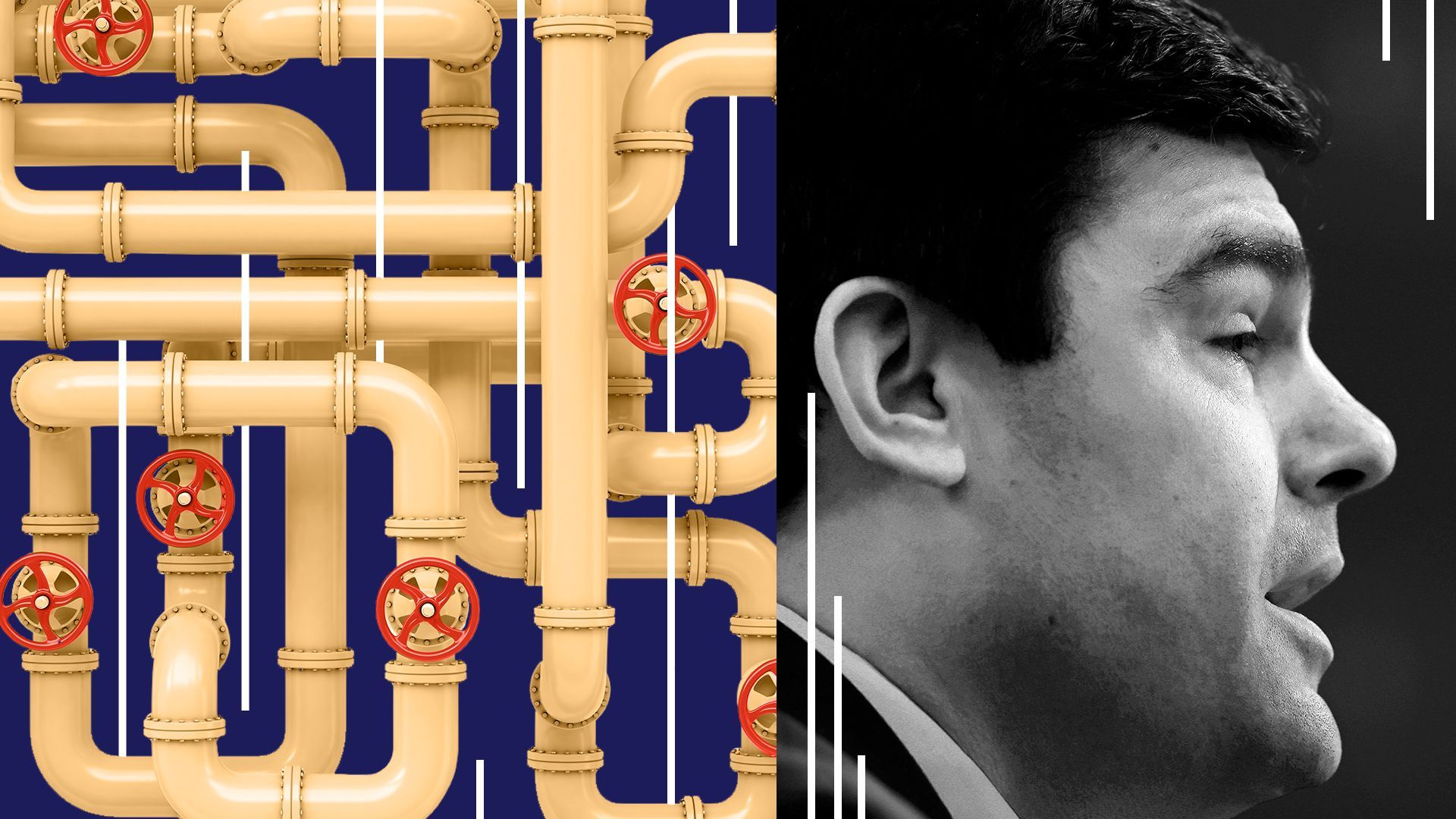 | | | Photo illustration: Aïda Amer/Axios. Photo: Aaron M. Sprecher/Bloomberg via Getty Images | | | | EQT Corporation boss Toby Rice, whose company is the largest U.S. natural gas producer, hopes to win support for a gigantic expansion of exports to displace carbon-spewing coal plants abroad, Ben and Andrew write. - "This is the biggest green initiative on the planet, hands down, full stop," he tells Axios.
State of play: Rice, whose company's production is in Appalachia, has been busy promoting the proposal since March. He chatted with your Generate hosts Friday. - One takeaway is that Rice says he's a realist. "People really don't understand how much energy is being used around the world, and when zero-carbon solutions like solar and wind cannot meet that demand, people around the world, they're going to use coal," he said.
- He points to rising coal-fired power generation and growing global emissions, even as renewables have soared. "We cannot just be looking at the ideal Nirvana solution."
Yes, but: Gas has an uneasy relationship with climate policy. Keeping Paris Agreement goals from slipping away means moving away from all fossil fuels — including gas, though not as quickly. And leaks of planet-warming methane in gas production and transport are a major problem. Zoom in: Here are a few more takeaways... EQT is getting an audience. Rice attended a mid-May meeting between Energy Secretary Jennifer Granholm and execs with American Exploration & Production Council members. - LNG's potential to displace coal abroad was among the topics.
- "We've seen an increase dialogue with the administration, which is really amazing," Rice said, adding there's been "support and engagement" in Congress.
He wants help with permits, not money. "We've got to be able to build pipelines and LNG facilities faster than we've ever done it before. That's why we need the political support," he said, noting the proposal does not envision on public financing. There are leaps of faith here too. Rice touts EQT's efforts to curb emissions, but industry-wide performance is uneven. - Another problem is the potential that new pipelines and other infrastructure will lock in higher use for many decades. But Rice calls pipelines flexible.
- "We can be smart about the infrastructure that we build, and we can make sure that we build this pipeline infrastructure that is ready for the next transition in energy, which is making sure these pipelines are hydrogen-ready."
- The plan also promotes carbon capture taking hold in the power sector in the future.
By the numbers: A pitch deck unveiled in March calls for quadrupling U.S. LNG export capacity by 2030 to reach 55 billion cubic feet per day, alongside a 50% rise in domestic gas production. The deck, which has been shared with the Biden administration, argues U.S. gas could replace around one-third of global coal use by 2030. |     | | | | | | Bonus: the role of renewables | 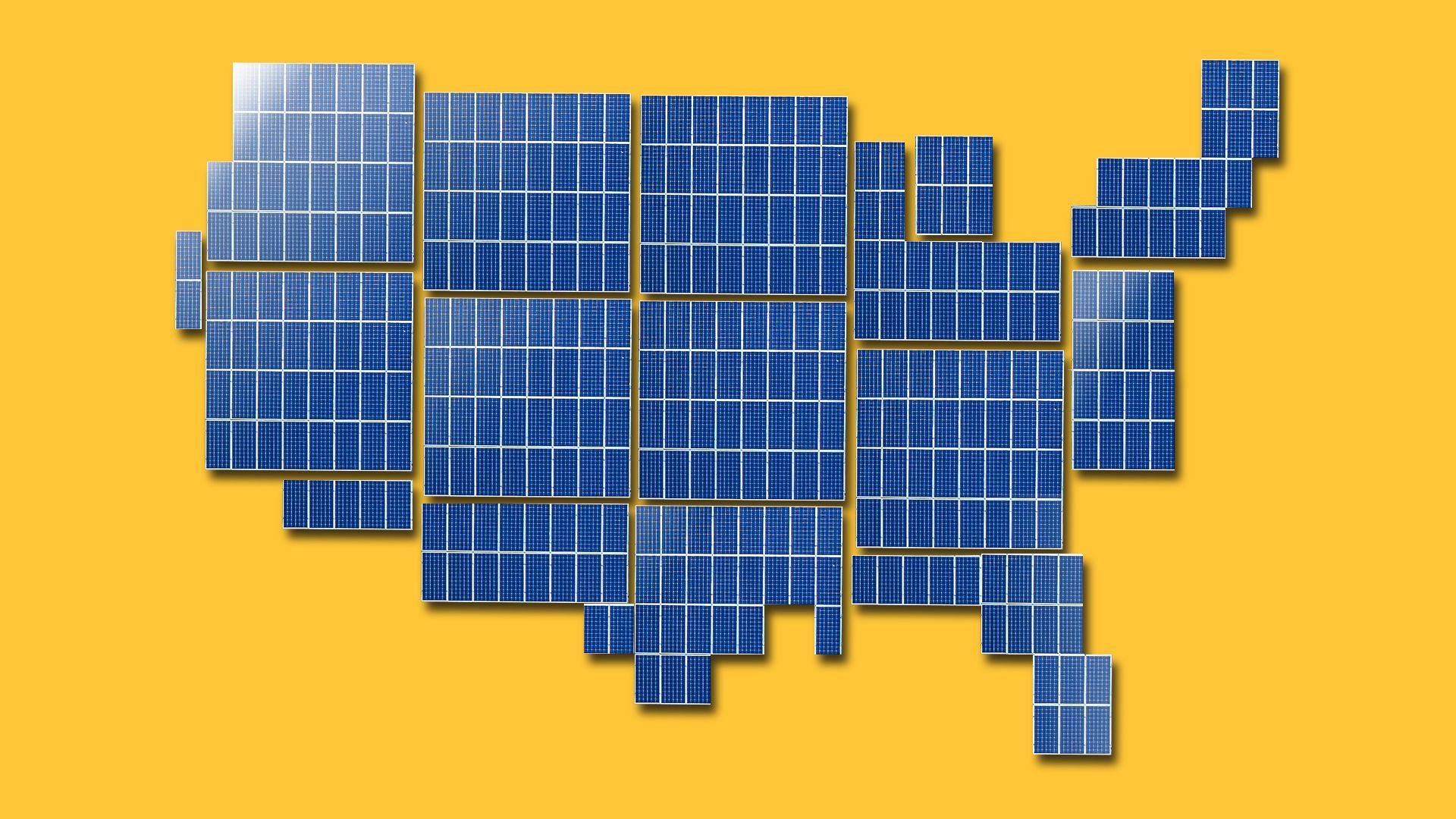 | | | Illustration: Annelise Capossela/Axios | | | | In his conversation with Axios, Rice said renewables are not capable of being reliable energy providers, Andrew writes. He cited their intermittency and the soaring costs of raw materials. Driving the news: Instead, he pitched building more natural gas "peaker" power plants domestically that would kick in when the grid becomes strained. Zoom in: Peaker plants are an environmental justice issue as many are located in poorer neighborhoods and are associated with higher burdens of pollution-related illnesses. Between the lines: Rice's main goal is to use LNG to displace coal use abroad, but policymakers have different ideas of how to target coal. The U.S. is part of a coalition of countries and institutions working to decarbonize South Africa's coal-dependent electricity sector, and there is talk of an upcoming rollout of a similar approach to Southeast Asia. What he's saying: "People think that renewables are ready to carry the world. They're not," Rice said. - "The point is, the supply chains, the workforce, all of that to move us to a renewables-only future does not exist today. It's arguable if it's going to exist in the next 50 years," Rice said.
Yes, but: In many areas, solar and wind power can be a cheaper source of electricity than natural gas. |     | | | | | | 2. EU set to ratchet up energy pressure on Putin | 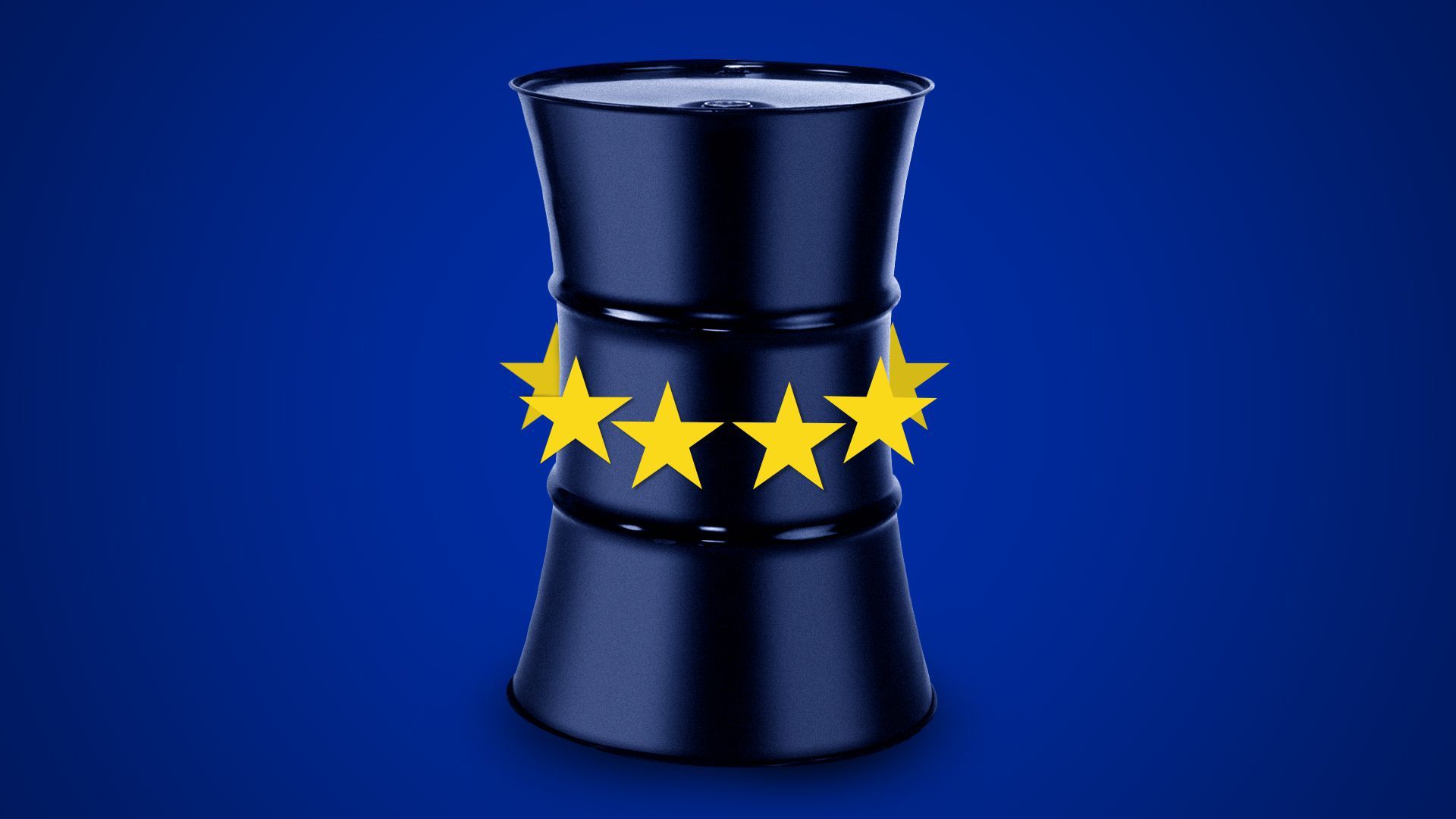 | | | Illustration: Shoshana Gordon/Axios | | | | European officials say weeks of negotiations have yielded agreement "in principle" to ban 90% of the bloc's oil imports from Russia by year's end in response to the invasion of Ukraine, Ben and Rebecca Falconer report. Why it matters: It's Europe's strongest move yet to wean itself off Kremlin-backed energy. - Europe relies on Russia for roughly a quarter of its oil.
- It's a lucrative market for Vladimir Putin's regime, absorbing nearly half its crude oil and condensate exports last year.
What they're saying: "This immediately covers more than 2/3 of oil imports from Russia, cutting a huge source of financing for its war machine," European Council president Charles Michel tweeted. "Maximum pressure on Russia to end the war," he added. The intrigue: There is an exemption for oil transfers by pipelines after the EU saw some resistance to the proposed oil embargo from landlocked countries, notably from Hungary. Yes, but: "In response to the EU's decision, Mikhail Ulyanov, Russia's permanent representative to international organizations in Vienna, took to Twitter, saying: 'Russia will find other importers,'" AP reports. What we're watching: ClearView Energy Partners, in a note, said the deal puts upward pressure on overall energy prices. - Infrastructure limits and refineries' need for specific crude grades could "limit reallocation of diverted Russian barrels," making markets tighter.
- They also predict that Putin is "unlikely to abet the E.U.'s ambitions of a graceful transition by continuing to provide reliable oil and gas supplies the whole way down."
Where it stands: Crude prices are at their highest levels since mid-March as traders digest the agreement. "Oil prices draw further support as Shanghai has announced an end to its two-month-long COVID-19 lockdown," Reuters reports. Brent crude is trading over $123 this morning. |     | | | | | | A message from ExxonMobil | | Energy for today and solutions for tomorrow | | | 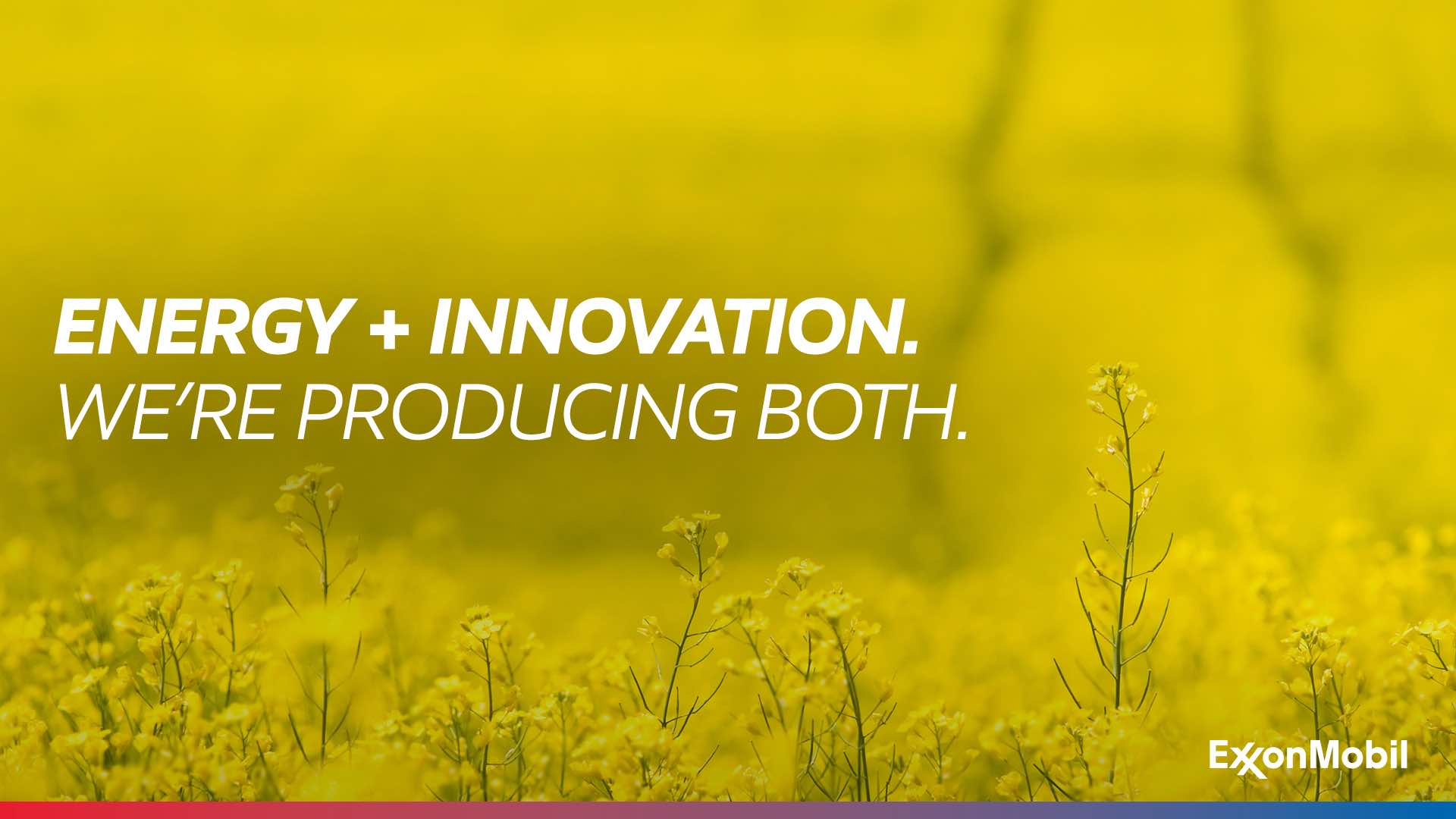 | | | | At ExxonMobil, we're working to supply the energy the world needs while also developing lower-emission fuels. Innovations like renewable diesel made from plants could reduce emissions from trucks by about three million metric tons per year compared to conventional fuels. | | | | | | 3.🏃🏽♀️Catch up fast: Saudi Arabia and Australia | | Diplomacy: "Saudi King Salman appointed minister of state for foreign affairs Adel al-Jubeir as the kingdom's climate envoy, a royal decree said on Sunday, adding that he will also keep his job as a minister," Reuters reports. - Yes, but: Per Bloomberg, "It wasn't immediately clear what the appointment means for the climate policy of the world's largest crude oil exporter — which has typically been directed by officials in its Ministry of Energy."
Shareholder advocacy: "AGL Energy has ditched its plan to split into separate generator and retailer arms, capitulating to the billionaire climate activist Mike Cannon-Brookes' efforts to foil the move." (The Guardian) |     | | | | | | 4. Hurricane Agatha hits Mexico, concerns shift to Gulf | 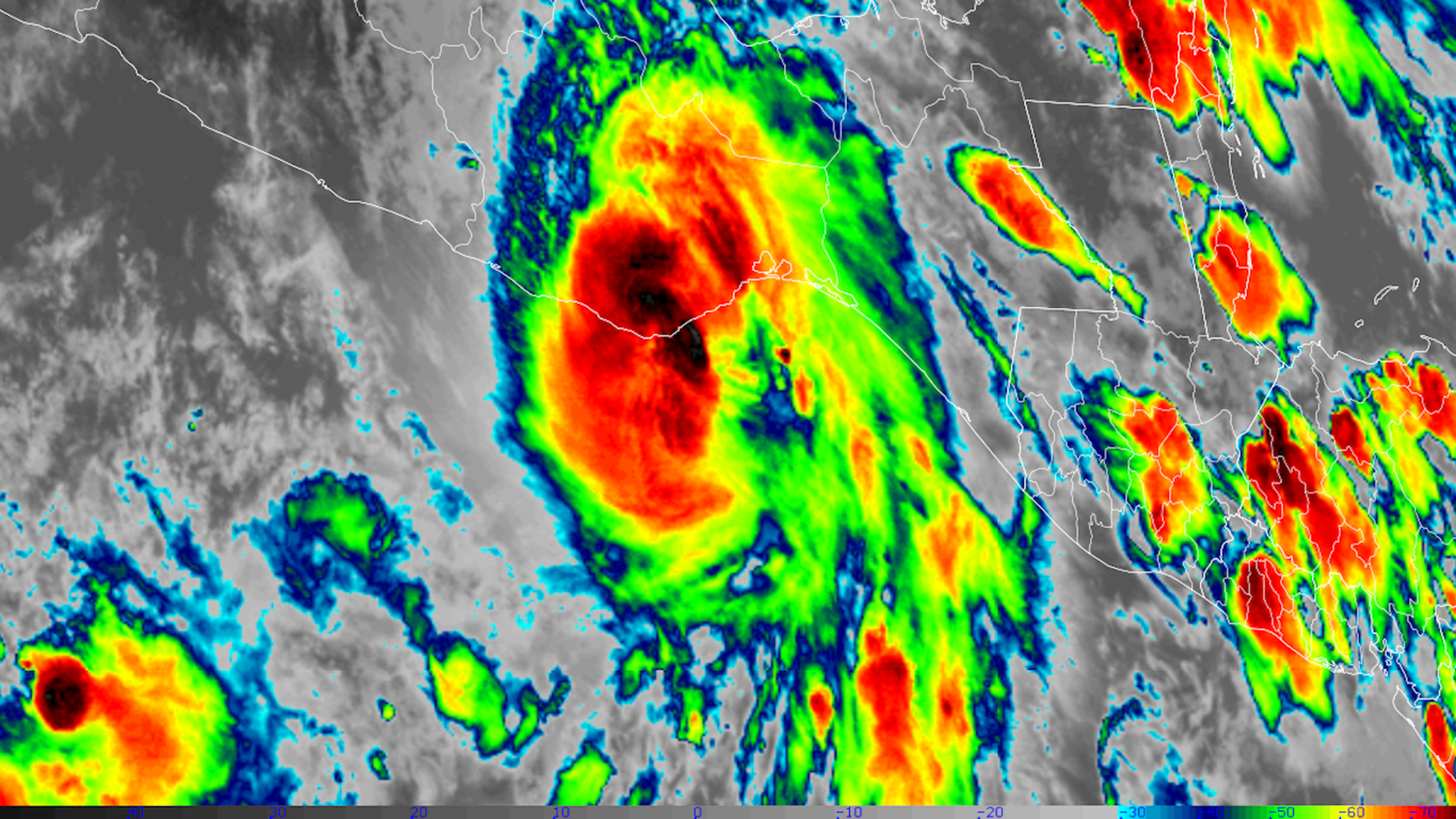 | | | Satellite view of Hurricane Agatha as the storm made landfall in southern Mexico on May 30. (CIRA/RAMMB) | | | | Hurricane Agatha is dissipating over the mountainous terrain of Oaxaca, Mexico, and will be a remnant low by afternoon, Andrew writes. The big picture: The first hurricane of the eastern Pacific season rapidly intensified on Sunday, and became the strongest hurricane to make landfall in the eastern Pacific in the month of May. It made landfall Monday afternoon near Port Angel, Mexico with 105 mph sustained winds. What's next: After dumping flooding rains over Mexico, the storm's remnant circulation may re-develop over the Gulf of Mexico into a tropical depression or tropical storm, and take aim at Florida this weekend. |     | | | | | | A message from ExxonMobil | | We're working to ensure energy security and advance innovation | | |  | | | | At ExxonMobil, we're working to produce the energy the world needs today, while developing new, engine-ready fuels for tomorrow. Solutions like renewable diesel, advanced biofuels, and eFuel made with captured CO2 could help reduce emissions by up to 85% compared to conventional fuels. | | | | Thanks for reading and see you back here tomorrow. |  | It's called Smart Brevity®. Over 200 orgs use it — in a tool called Axios HQ — to drive productivity with clearer workplace communications. | | | | | | Axios thanks our partners for supporting our newsletters. If you're interested in advertising, learn more here.
Sponsorship has no influence on editorial content. Axios, 3100 Clarendon Blvd, Suite 1300, Arlington VA 22201 | | | You received this email because you signed up for newsletters from Axios.
Change your preferences or unsubscribe here. | | | Was this email forwarded to you?
Sign up now to get Axios in your inbox. | | | | Follow Axios on social media:    | | | | | |
Post a Comment
0Comments